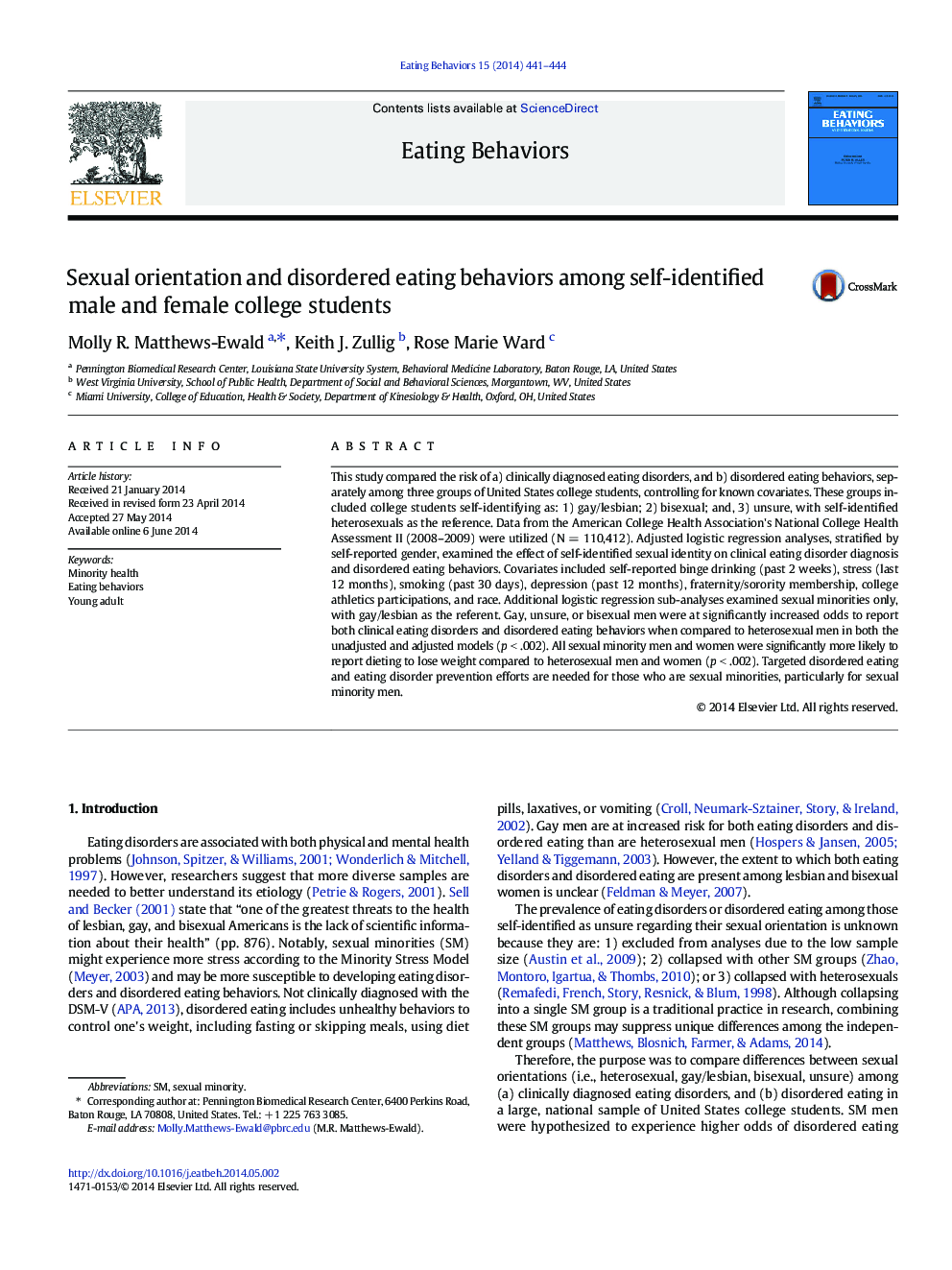| کد مقاله | کد نشریه | سال انتشار | مقاله انگلیسی | نسخه تمام متن |
|---|---|---|---|---|
| 906363 | 917003 | 2014 | 4 صفحه PDF | دانلود رایگان |
• Maladaptive eating behaviors among sexual minority college students was examined
• Sexual minority men are at increased odds to report maladaptive eating behaviors
• Sexual minority men and women were more likely to report dieting to lose weight
• Targeted prevention efforts are needed, particularly for sexual minority men
This study compared the risk of a) clinically diagnosed eating disorders, and b) disordered eating behaviors, separately among three groups of United States college students, controlling for known covariates. These groups included college students self-identifying as: 1) gay/lesbian; 2) bisexual; and, 3) unsure, with self-identified heterosexuals as the reference. Data from the American College Health Association's National College Health Assessment II (2008–2009) were utilized (N = 110,412). Adjusted logistic regression analyses, stratified by self-reported gender, examined the effect of self-identified sexual identity on clinical eating disorder diagnosis and disordered eating behaviors. Covariates included self-reported binge drinking (past 2 weeks), stress (last 12 months), smoking (past 30 days), depression (past 12 months), fraternity/sorority membership, college athletics participations, and race. Additional logistic regression sub-analyses examined sexual minorities only, with gay/lesbian as the referent. Gay, unsure, or bisexual men were at significantly increased odds to report both clinical eating disorders and disordered eating behaviors when compared to heterosexual men in both the unadjusted and adjusted models (p < .002). All sexual minority men and women were significantly more likely to report dieting to lose weight compared to heterosexual men and women (p < .002). Targeted disordered eating and eating disorder prevention efforts are needed for those who are sexual minorities, particularly for sexual minority men.
Journal: Eating Behaviors - Volume 15, Issue 3, August 2014, Pages 441–444
